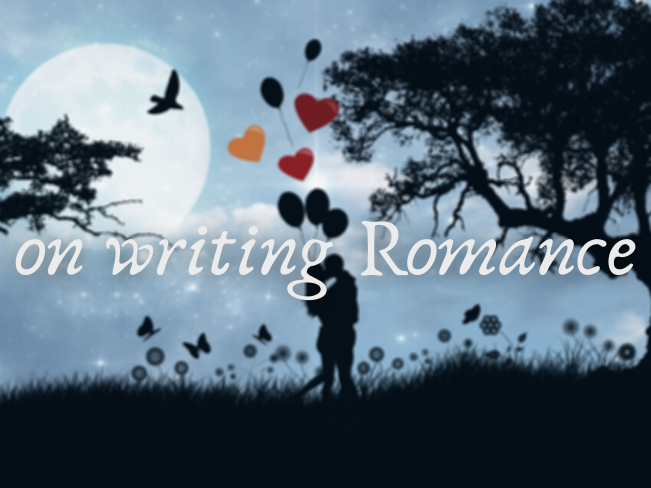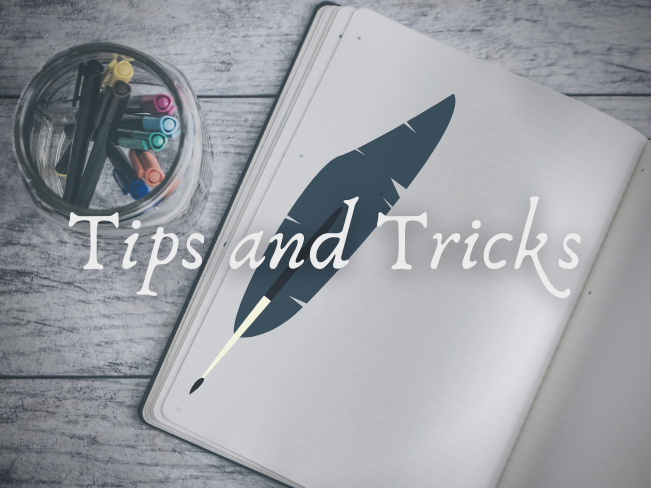
In my first post on worldbuilding, I talked about worldbuilder’s disease: what it is, and why it keeps SFF writers from getting their stories onto the paper. This week, we’ll look at strategies for overcoming worldbuilder’s disease and getting started on our manuscripts.
Help! I’ve built a massive world and have no idea where to start
A missing starting point comes from one of three issues. Either:
- We’re draft blocked: we know what story we want to tell, but have no idea how to write chapter one, or
- We’re plot blocked: we have 10,000 years of global history and don’t know how to focus on a book-sized idea, or
- We’re revision blocked: we know the story, we know where to start, we’ve started writing… but we can’t get past the beginning (one of two reasons: structure or perfectionism.
While 1) and 3) aren’t problems exclusive to worldbuilder’s disease, they crop up often enough I think they’re worth including in the greater discussion. Even if you’ve never struggled with worldbuilder’s disease, you may see yourself in these problems/solutions.
This week, I’ll explore tips for draft-blocked and plot-blocked writers.
Draft-blocked writers
Draft-blocked writers tend to struggle because they don’t know where to start… and therefore assume they’re not ready to get drafting. Instead of putting words on the page (which feels so big! so final!), draft-blocked writers noodle endlessly with worldbuilding details, plot structure, character bios, etc. – anything that delays the inevitable.
The defining feature of a draft-blocked writer is how much about their story they already know. A draft-blocked writer could probably narrate the entirety of their plot off the top of their head. They can tell you all about their characters, their world, the central conflicts in their story… and yet they still don’t have a draft. This isn’t a writer at a loss for where their story goes. They have the beginning, middle, and end (imagined in a whole lotta detail) sitting in their head.
(They’re also the kind of writer who wishes they could download their thoughts onto the page and be done with it – though I suspect we’ve all wished for that superpower at some point!)
Does this sound like you? If so, here are some tips for ripping off the band-aid and forging into that first draft:
- Give yourself permission to suck.
I’m serious. First drafts are always a little wonky, no matter how much experience you have as a writer. If you’re brand new to the novel-writing thing (or the SFF novel-writing thing), your first draft is going to be wonkier than, say, a career writer who has spent thirty years in the business.
You’ll find writing advice on the internet that goes something like “Don’t worry about your first book, it will suck and you will be ashamed of it.” That’s absolutely not what I’m trying to say.
You can and should be proud of the first book you write.
But even the best writers don’t get it perfect on the first (draft) try. Many of us struggle with beginnings. It’s okay if the dialogue isn’t sparkling. If the setting is a little wibbly. If you feel like you aren’t getting your character voices right.
It’s okay if you start in the wrong place and realize, after writing, that the first scene is boring. It’s okay if you write it out and decide that, actually, you want to switch from first to third person narration (or vice versa).
It’s okay if you write chapter, after chapter, after chapter, thinking ‘wow, this is harder than I thought, and I’m not very good at it’.
Let go of the fear of failure – of the words on paper falling short of the magical world that lives inside your head.
You can fix the words on the page in revisions. You can’t fix a blank page.
Every mistake you make in the drafting process is one you can learn from – and those mistakes will, ultimately, make you a stronger writer so long as you do the work needed to fix them.
- It takes 10,000 hours (or 1,000,000 words, depending on who you ask).
If you’ve taken advice on subject mastery from Malcolm Gladwell or Stephen King, you might have run across either of these two figures. Gladwell champions the 10,000 hours approach (ie: that’s how long it takes to master a discipline). Stephen King believes the first million words of written fiction are practice.
That’s a lot of practice.
Where are you in your writing journey? If the words you’re struggling to squeeze out are the very first you’re putting to paper, take some solace in those numbers. Is the road to mastery a long one? Yes. Can it seem daunting at times? Of course. The upshot, though, is that the book you’re writing is a practice round. It doesn’t have to measure up to published works in your genre. It doesn’t need to be groundbreaking or profound.
It doesn’t need to be perfect.
The clock on that 10,000 hours starts the moment you put those first words to paper. All writers have a long way to go before achieving mastery of their fields, so get started!
Plot-blocked writers
So you’ve built a world with 10,000 years of consecutive, fleshed-out history. Perhaps there’s no single, definitive conflict, but rather, lots of cyclical conflict. That’s very cool – very true to life! I love SFF that serves as both an escape from the real world, and a mirror through which we can explore real-world issues.
But.
These epics can be a beast to plot.
The defining features of a plot-blocked writers are twofold: first, in how much of the world they’ve developed. (If you know the name of every king to sit on a nation’s throne for a 2,000-year dynasty, you might fall into this category.) Second, in how much of the plot they don’t know.
You might be a plot-blocked writer if you stare at all your worldbuilding notes and think ‘But where do I even begin?’ Not just where to start your opening chapter – that concern might not even cross your mind. Plot-blocked writers often don’t know who their protagonist is. Do you focus on the king in the year 523, or the draconic invasion in year 1278?
Do you set the story in Nriian, the elvish forest, or among the coastal mountain dwarves?
The world is your sandbox, and you have no idea what kind of castle you want to build.
You’ve put in a whole lotta hard work into this incredible, rich world. So much work, in fact, that your issue isn’t the lack of possible plot points, but a surfeit of them. That’s an amazing problem to have, even if it might not feel that way right now. Why not reward yourself for all of that hard work by letting yourself play in your sandbox for a little while?
No pressure. Just messing around.
How does one ‘play in the sandbox’ of an epic, multi-generational world?
Flash fiction.
There’s a ton of writing advice championing short fiction (particularly short stories) as a great way to get to know characters, hone voice, and strengthen your plot and setting ideas before forging into the novel itself. I agree with that advice in theory, but want to sharpen it further in practice.
Don’t worry about writing a complete short story. Those can range up to 20k! Instead, focus on short, exploratory writing bursts: aka flash fiction.
The definition of flash fiction varies depending on which source you consult, but for the purpose of this post, let’s say that flash fiction is any story less than 1500 words. When I write flash fiction, especially when I’m doing exploratory writing, I try to use time-based goals instead of wordcount goals.
In other words, I sit down at my computer, set my timer for fifteen minutes, and start typing to see what comes out.
Want to write about an elf in year 214 when the empire was still young? Set your timer and do it. Want to skip next to the orphan farm boy in year 2783 when the apocalypse is nigh? No worries. And of course, if you skip back a thousand years the following morning, that’s fine.
Continuity isn’t an issue. Changing characterization between flash fics is fine. You can alter your history, change names, play with conflicting ideas – anything is fair game in these exploratory shorts. You’re poking at ideas in writing exercises. There’s no such thing as a plot hole, here.
What a relief, right?
Try to set these fics in super-deep POV. Resist the temptation to retell history from an authorial perspective (you already know the history! That won’t teach you anything new). By getting inside different characters’ heads, you can start sniffing out where the interesting stories are. Eventually, you’ll start to see trends emerge – ideas you keep noodling with, time periods you prefer, or characters you return to time and again.
Even the characters, time periods, and setting details you don’t see the relevance of will work their way into your story in surprising ways. Flash fiction is, above all, a brainstorming exercise. Instead of daydreaming by looking out the window, though, we’re daydreaming directly onto the page in short narrative ‘thoughts’. Expressing these thoughts via written word – and having record of them! – will help tremendously when you eventually start the drafting process.
Double bonus? You’ve finally gotten words onto the page, at last! You’ve broken the seal! You’re doing it!
Triple bonus? You’ll have a wealth of short stories to use in newsletters, as promo, or to start a Patreon someday.
If you’d like to try writing flash fiction but need a push to get started, why not join me for my Morning Pages? I write to SFF prompts in the morning several times a week. Sometimes I dip into universes that already exist in my head. Other times, I write whatever idea jumps into my mind. They’ve been a tremendously helpful way to flex my creative muscles and explore different writing styles, skills, and ideas. I’d love to see you there!
Up next week: revision-blocked writers
Come join me next week for part three of my (now four-part, eek) series on worldbuilder’s disease. I’ll break down the problems facing revision-blocked writers and offer solutions for those of us who catch ourselves revising our first four chapters ad infinitum instead of finishing our novels.
As always, if you’re enjoying the content, please consider liking this post or dropping your e-mail in the subscribe box in the side bar so you don’t miss an update.
 Romance and the ‘Other’
Romance and the ‘Other’ Why Your Opener Isn’t Working
Why Your Opener Isn’t Working Are You Telling a Story or Writing Alt Text?
Are You Telling a Story or Writing Alt Text?
[…] Disease! If you’re looking for the other parts in the series, you can check out the first, second, third, or fourth posts right here on the […]